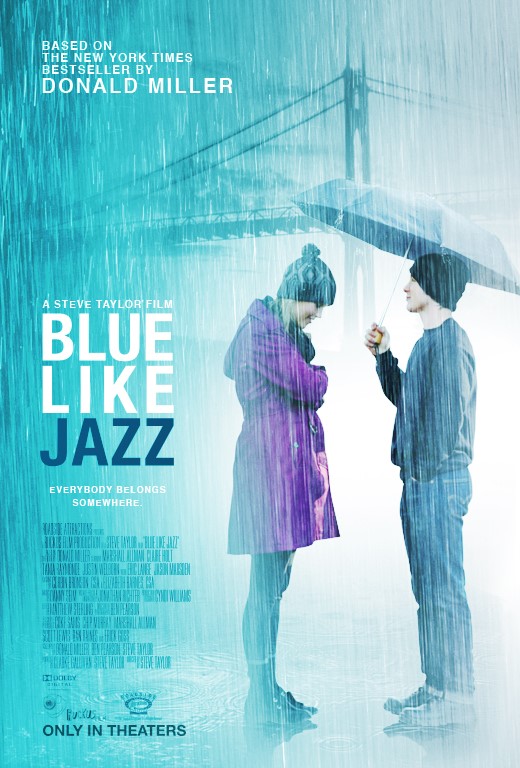The clauses on a page become photographs in motion. The word becomes flesh and dwells on the silver screen. Dystopian teeny-boppers throw down their cash by the millions to see Katniss become an actual human being. For angsty Christians though, adaptation really is an act of incarnation. Donald Miller’s witty and insightful collection of essays on faith, “Blue Like Jazz,” is finally a movie and here’s one way to think about it.
Turning a book of nonspecific anecdotes and essays into an A-to-B storyline requires precision and insanity. Adherence to every detail was not the goal here, nor should it be in the first place. There are a few Easter eggs that will be lost on those unfamiliar with the book — a computer generated Don Rabbit and Sexy Carrot are sure to leave the uninitiated puzzled — but the film mostly exists as its own entity. There’s a definite family resemblance but it’s more begotten than brotherly. The book is the wisdom of a father and the film’s his favorite son, carrying his thematic DNA into story and interaction.
Miller’s books are relief on the battlefield. Anyone trying to make it as a self-aware Christian on Sunday and the six days after can relate to the struggles detailed in his literary output. Like the book, the film takes place on the Reed College campus in Portland, Ore. Compared to it, Biola looks like a beatific vision. Consider Don, the film’s main character. If his mother’s womb was Christian subculture, there is no doubt he was untimely ripped. His peers are talented at keg stands and well-versed in Michel Foucault. Authority, whether political, corporate or ecclesial, is subverted on principle. These are not just boneheaded college kids or heady, Marxist intellectuals. These are the people of Portland and, in God’s world, they count too.
Film shows failures and potential of church
“Blue Like Jazz” is bound to offend those who would rather forget the world “outside.” Typical campus living is not toned down or moralistically denigrated. This is a movie, not a sermon, and the filmmakers do not shirk from depicting Reed College accurately. It’s a story populated by characters in conflict with themselves, each other and the world. All three of these antagonists are starkly portrayed with the honesty of a documentarian. The characters behave like stereotypical people from Portland in caricature — culturally aware, intellectually capable and agnostically inclined. One character gallivants around the Reed College campus as the pope while deriding Christianity’s influence on nearly every level. Another is a frustrated, religiously ambivalent, Russian student whose grandfather was murdered for his faith long ago.
If Christian art is to say anything to God’s world, it must say it to the world as it is. If God so loved the world enough to send his son to save it, we do both God and our neighbors a disservice by turning down sin and turning up morality. The church is God’s colony on earth and the film is unafraid of showing its failures and burgeoning potential. There is no doubt that the Levitical law codes would disapprove of nearly all of the characters at some point.
Following the methods of Jesus
On a technical level, this is not the greatest movie ever made. Its triumph lies in cracking open a door that has been kept shut for far too long. It’s the first piece of overtly Christian filmmaking I have seen so far which exalts Jesus in the world as it is — Christ’s salvation reaching out into every nook and cranny, seeking to save the lost. If God can come crashing in at Reed College, he can start his work anywhere.
Reclining with tax collectors and sinners is an uncomfortable, gray line of work but it is where we find our servant king. Both sexual indiscretion and an earnest passion for the poor may reside in a single person. The movie reminds us of this murky and confusing reality, revealing the answer to be Jesus all and every time. He corrects by companionship, instructs by forgiveness and redeems by giving himself away. “Blue Like Jazz” enthrones the Lord on the world he says is his, the same world that is radically awry. His people’s passions may be mismatched and unsure but his resurrection starts the journey home. People like Don, people like you and I, are invited to partake in his project.







